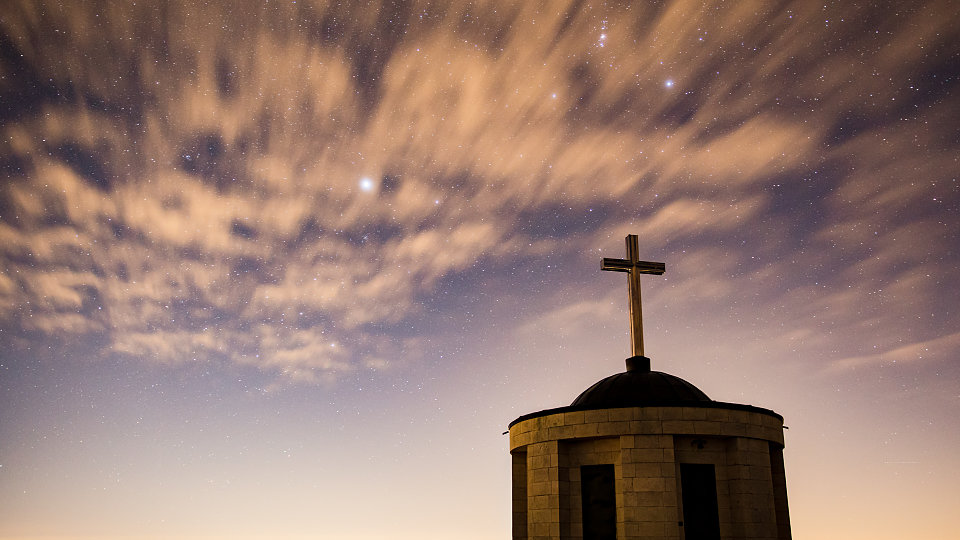The Church and the Communion of Saints

I’m sharing excerpts from my new book, Creed: What Christians Believe and Why, on the blog in these next few weeks as we approach the Lenten season. Today, I’m including a portion from Chapter Four, “The Church and the Communion of Saints.” Click here to read last week’s post, which featured an excerpt from Chapter Three. Exploring our belief in the holy catholic church and the communion of saints is, in a very real sense, to unpack and clarify the work of the Holy Spirit. Before thinking about what we mean by the church, I’d like to explore what is meant when the Creed affirms that the church that Christians believe in is “holy” and “catholic.” When many people view the church, it looks neither holy nor catholic. It seems filled with hypocrites and judgmental people; in fact, this is one reason why many have turned away from “organized religion” and why so many young adults today say that they are “spiritual but not religious.” Interestingly, these same young people have great admiration for Jesus but far less admiration for his people, the church. They see neither holiness nor catholicity when they look at the most vocal Christians and the most outspoken churches today. It helps to understand that when we say we believe in the holy catholic church, we’re not saying the church is filled with really righteous people who are nearly perfect. The word holy in the biblical context means belonging to God, or “sacred to” God or “set apart for” God. You’ve likely heard it said that the church is not a country club for perfect people, but instead a hospital for broken and sinful people who are slowly being made well. The church, then, is holy when those who are a part of her recognize that she belongs to God and not to her members. She is holy when those who consider the church home don’t ask “What do we want our church to do for us?” but rather “What does God want his church to do for him?” One metaphor for the church suggested by several passages in the New Testament is that of a bride, and specifically Christ’s bride. Paul says a husband should love his wife as Christ loved the church and gave himself for her. Using this metaphor, the church is holy when she loves Christ and seeks to be faithful to him. But what about the word catholic? As used here, catholic is an adjective. It does not refer to the Roman Catholic Church, at least not exclusively. Catholic comes from a compound Greek word that means, in essence, everywhere. (The Greek term kata holos, found in Acts 9:31, describes the church “throughout” Judea, the Galilee, and Samaria.) The word came to be a reminder of the church’s unity: every community of believers across the Roman Empire and beyond was bound together in the gospel. Despite differences in language or ethnic makeup, these communities were a part of one church, the church everywhere, the catholic church. Tragically, today there are many divisions within the Christian family—more, it seems, every day. Jesus predicted this when he prayed in John 17 that God would make his followers one, as he and the Father are one. He tried to forestall the divisions among his followers by telling his disciples not to judge one another, and to love one another and forgive one another. Nevertheless, the church divided and continues to divide. Despite this, our belief in the holy, catholic church is an ecumenical belief that all who call upon the name of Christ and seek to follow him as Savior and Lord are, despite their denominational or nondenominational names, part of one universal church. The Roman Catholic Church is a part of that one universal church, and so is the Eastern Orthodox Church, as well as the Lutherans, Presbyterians, Episcopalians, Baptists, Pentecostals, Methodists, nondenominational churches, and all the rest. The above is just a short excerpt. In the rest of the chapter I unpack the meaning of the “communion of the saints” and offer a case for why the church matters today, in a time when many have come to believe the church is irrelevant, or worse. I believe in the church, and after reading the chapter, I hope my readers will join the creed in affirming, “I believe in the holy, catholic church." Today's excerpt is from Chapter Four of Creed: What Christians Believe and Why. If you would like to know more about the book or the children, youth or adult small group study resources based upon it, click here; or click here to view the promo videos (scroll to the bottom of the page and click on the "Videos" tab).